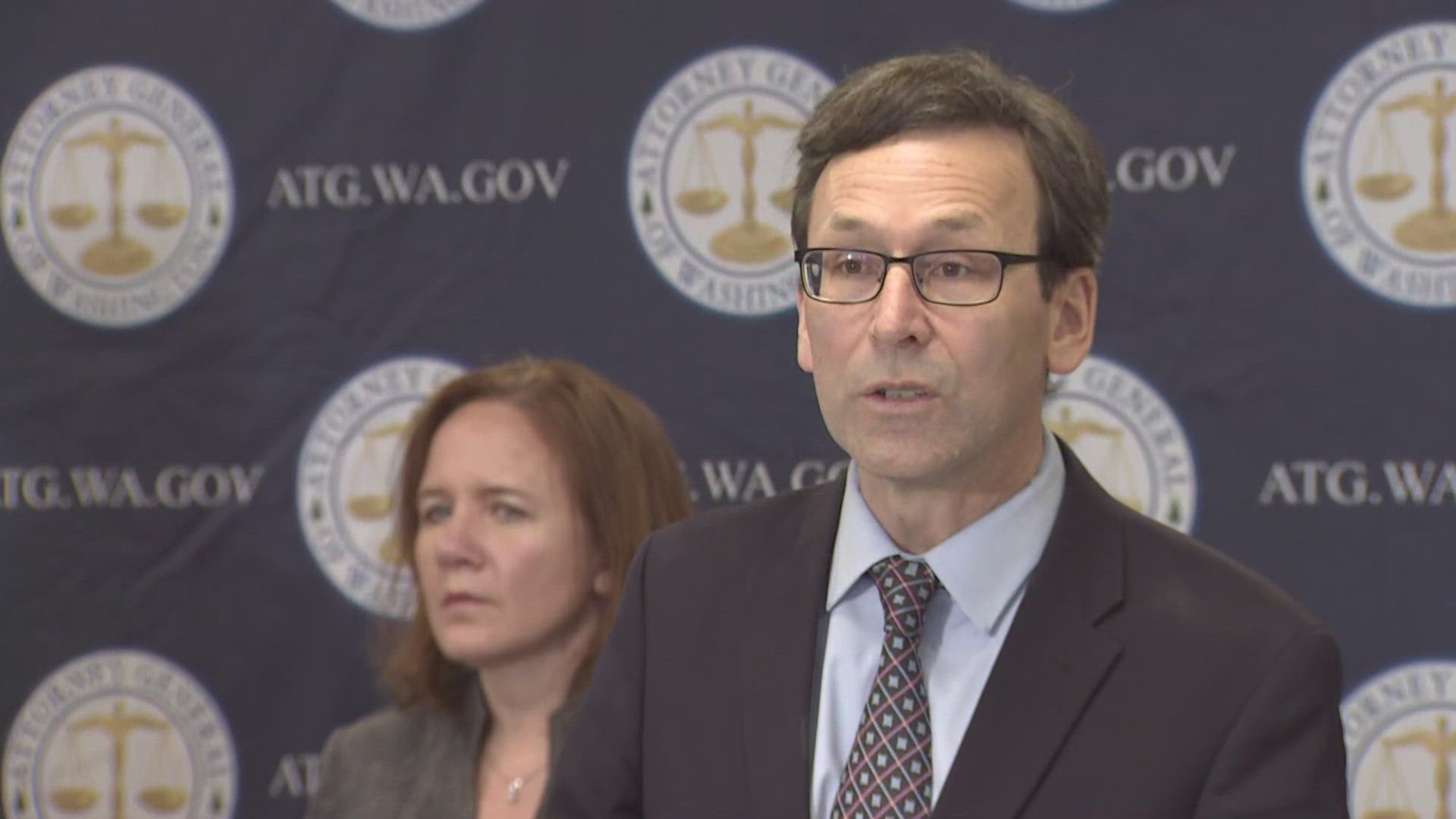SEATTLE — A merger between grocery chain giants Kroger and Albertsons would limit competition in Washington state, give consumers fewer choices and hike grocery prices, according to a lawsuit aimed at stopping the deal filed by the Washington State Attorney General (AG) in a King County superior court on Monday.
Though the companies have claimed the merger would increase competition and lower prices, the AG's office is arguing it would actually give Kroger a near monopoly in some Washington communities. Kroger and Albertsons own more than 50% of the grocery stores in Washington state, according to the AG's office, operating more than 300 locations. Kroger is also the owner and operator of brands like Fred Meyer and QFC, while Albertsons owns Safeway and Haggen. Washington would be one of the states most impacted by the merger.
Company communications acquired by AG Bob Ferguson's office reveal that some company executives themselves were confused about the plans, with one plainly acknowledging that the move will not help customers' bottom lines.
"You are basically creating a monopoly in grocery with the merger," wrote a vice president of marketing with Albertsons in a message to another employee. "It makes no sense."
"It's all about pricing and competition, and we all know prices will not go down," wrote another Albertson's executive.
In response to monopoly concerns, Kroger offered to sell off more than 100 of its Washington locations to a wholesaler to increase competition in the state, however the AG's office argues this plan sets up the proposed buyer, C&S Wholesale Grocers, for failure. C&S currently operates 23 stores nationwide. Ferguson called into question whether the chain would be prepared to increase its business several-fold and become one of the biggest grocery chain owners in Washington state virtually overnight.
Ferguson drew parallels to Albertsons 2015 divestment of dozens of Washington stores to Haggen - a chain that had only 18 stores at the time of the sale. Haggen ultimately could not scale to operate all of the businesses it had acquired and filed for bankruptcy less than a year later. Albertsons reacquired more than 50 of the stores it had originally sold to the company and now operates all of the Haggen locations in Washington state.
Ferguson noted that several Washington residents have reached out to his office with concerns about the Kroger-Albertsons deal.
“We are disappointed in Attorney General Ferguson’s premature decision to file a lawsuit while the merger is still under regulatory review," a statement from Kroger and Albertsons companies to KING 5 says. "We remain in active and ongoing dialogue with the FTC and the other state Attorneys General.
"The merging parties will vigorously defend this in court because we care deeply about our customers and the communities we serve, and this merger will result in the best outcomes for Washington consumers.
"Blocking this merger would only serve to strengthen larger, non-unionized retailers like Walmart, Costco and Amazon, by allowing them to maintain and increase their overwhelming and growing dominance of the grocery industry. In contrast, Kroger and Albertsons Companies merging will bring lower prices to more customers, strengthen and create good-paying union jobs, and bring more fresh, affordable food to more communities.”

